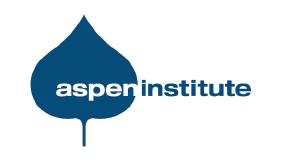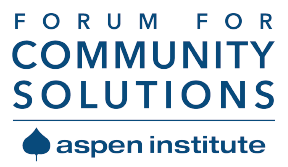Who we are
The Youth and Young Adult Wellbeing Project is a collaborative well-being research project where young people, supported by adult allies, create a knowledge base for advocacy, policy development, and best practices. Our goal is to help young people thrive.
This collaboration is coordinated by Fresh Tracks at the Aspen Institute Forum for Community Solutions (AFCS) in partnership with a community of individuals and organizations supported by the Annie E. Casey Foundation.
Who we are
The Youth and Young Adult Wellbeing Project is a collaborative well-being research project where young people, supported by adult allies, create a knowledge base for advocacy, policy development, and best practices. Our goal is to help young people thrive.
This collaboration is coordinated by Fresh Tracks at the Aspen Institute Forum for Community Solutions (AFCS) in partnership with a community of individuals and organizations supported by the Annie E. Casey Foundation.
Who we are
The Youth and Young Adult Wellbeing Project is a collaborative well-being research project where young people, supported by adult allies, create a knowledge base for advocacy, policy development, and best practices. Our goal is to help young people thrive.
This collaboration is coordinated by Fresh Tracks at the Aspen Institute Forum for Community Solutions (AFCS) in partnership with a community of individuals and organizations supported by the Annie E. Casey Foundation.
Our story
How do culture, values, and circumstances nurture well-being for youth and young adults?
Too often, this question is answered by adults on behalf of youth and their communities. This approach limits youth leadership and the agency they have in the outcomes of their lives. As the saying goes:
1
Nothing about us without us.
The Youth and Young Adult Wellbeing Project is a collaborative effort undertaken by young people and adult allies from communities and organizations across the United States and Canada. The project’s overall purpose is to empower youth and young adults to define, collect, and analyze data on their well-being as a basis for advocacy and the development of policies and practices that help them thrive.
Read more
At the outset of this project, three affinity groups were created: American Indian/Alaska Native (AIAN), Latine Bienestar (bienestar meaning “wellness”) and Black Expressions of Well-Being (Black Expressions). Each cultural identity group includes a design team of youth and young adults (ages 18–25), as well as research allies, adult research navigators, and peer research mentors. These groups have been meeting regularly over the course of more than 18 months to learn the strategy and technique of youth-led participatory action research (YPAR) and then develop corresponding research projects to identify key areas of well-being within specific cultural contexts and across cultural differences.
When we at AFCS met the other mentors and members of the design team, we immediately felt at home. In a society where Indigenous and ancestral knowledge from communities of color is not often acknowledged, we felt whole connecting with other young leaders who had similar backgrounds and shared stories not only of trauma but of joy and resilience.
Communities of color have done science for generations, cataloged through storytelling and transferred through our DNA. Our project continues this tradition.
As we bring our expertise to Western science, we’re also advocating strongly for our communities, shedding light on data and stories that tell people what it means to be part of our communities, and changing the way our communities view social science.
How do culture, values, and circumstances nurture well-being for youth and young adults?
Too often, this question is answered by adults on behalf of youth and their communities. This approach limits youth leadership and the agency they have in the outcomes of their lives. As the saying goes:
1
Nothing about us without us.
The Youth and Young Adult Wellbeing Project is a collaborative effort undertaken by young people and adult allies from communities and organizations across the United States and Canada. The project’s overall purpose is to empower youth and young adults to define, collect, and analyze data on their well-being as a basis for advocacy and the development of policies and practices that help them thrive.
Read more
At the outset of this project, three affinity groups were created: American Indian/Alaska Native (AIAN), Latine Bienestar (bienestar meaning “wellness”) and Black Expressions of Well-Being (Black Expressions). Each cultural identity group includes a design team of youth and young adults (ages 18–25), as well as research allies, adult research navigators, and peer research mentors. These groups have been meeting regularly over the course of more than 18 months to learn the strategy and technique of youth-led participatory action research (YPAR) and then develop corresponding research projects to identify key areas of well-being within specific cultural contexts and across cultural differences.
When we at AFCS met the other mentors and members of the design team, we immediately felt at home. In a society where Indigenous and ancestral knowledge from communities of color is not often acknowledged, we felt whole connecting with other young leaders who had similar backgrounds and shared stories not only of trauma but of joy and resilience.
Communities of color have done science for generations, cataloged through storytelling and transferred through our DNA. Our project continues this tradition.
As we bring our expertise to Western science, we’re also advocating strongly for our communities, shedding light on data and stories that tell people what it means to be part of our communities, and changing the way our communities view social science.
How do culture, values, and circumstances nurture well-being for youth and young adults?
Too often, this question is answered by adults on behalf of youth and their communities. This approach limits youth leadership and the agency they have in the outcomes of their lives. As the saying goes:
Nothing about us without us.
The Youth and Young Adult Wellbeing Project is a collaborative effort undertaken by young people and adult allies from communities and organizations across the United States and Canada. The project’s overall purpose is to empower youth and young adults to define, collect, and analyze data on their well-being as a basis for advocacy and the development of policies and practices that help them thrive.
Read more
At the outset of this project, three affinity groups were created: American Indian/Alaska Native (AIAN), Latine Bienestar (bienestar meaning “wellness”) and Black Expressions of Well-Being (Black Expressions). Each cultural identity group includes a design team of youth and young adults (ages 18–25), as well as research allies, adult research navigators, and peer research mentors. These groups have been meeting regularly over the course of more than 18 months to learn the strategy and technique of youth-led participatory action research (YPAR) and then develop corresponding research projects to identify key areas of well-being within specific cultural contexts and across cultural differences.
When we at AFCS met the other mentors and members of the design team, we immediately felt at home. In a society where Indigenous and ancestral knowledge from communities of color is not often acknowledged, we felt whole connecting with other young leaders who had similar backgrounds and shared stories not only of trauma but of joy and resilience.
Communities of color have done science for generations, cataloged through storytelling and transferred through our DNA. Our project continues this tradition.
As we bring our expertise to Western science, we’re also advocating strongly for our communities, shedding light on data and stories that tell people what it means to be part of our communities, and changing the way our communities view social science.
Our cultural affinity groups
Who gets to measure youth and young adult well-being? The answer is clear—young people themselves.
Our cultural affinity groups—AIAN, Black Expressions, and Latine Bienestar—collected data about their communities, by their communities, and for their communities. From this work, they created surveys and resources designed to empower their communities to better understand and support well-being.
American Indian/Alaska Native
![]() The AIAN design team, guided by research navigators, developed a well-being survey with input from Indigenous youth and adult allies across Canada and the United States. The survey focuses on what well-being means to AIAN communities, emphasizing the importance of nature, subsistence living, and traditional practices, which are vital to these communities’ well-being but often overlooked.
The AIAN design team, guided by research navigators, developed a well-being survey with input from Indigenous youth and adult allies across Canada and the United States. The survey focuses on what well-being means to AIAN communities, emphasizing the importance of nature, subsistence living, and traditional practices, which are vital to these communities’ well-being but often overlooked.
The team gathered data from 72 young adults, ages 18–26, to design the survey. By centering the voices of AIAN youth, the survey aims to understand and support the well-being of AIAN communities.
- Jerreed Ivanich – Research Navigator
- Sierra Quintana – Research Navigator
- Zenetta Zepeda (Zee) – Peer Research Mentor/Core Team
- Kimberly Pikok – Youth & Young Adult Design Team
- Shanoa Shandiin Nez – Youth & Young Adult Design Team
- Lara Jewell No Braid – Youth & Young Adult Design Team
- Jazmine Wildcat – Youth & Young Adult Design Team
- Selah Kone – Youth & Young Adult Design Team
- Rhinannon Nez – Youth & Young Adult Design Team
Black Expressions of Well-being
![]() The Black Expressions design team created a well-being survey based on interviews with Black youth and young adults across the diaspora, including youth from African American, Puerto Rican, Haitian, Ethiopian, Eritrean, and Afro-Colombian backgrounds. The survey explores how Black youth define well-being and examines the cultural, social, and financial factors that shape it. It highlights the importance of community, relationships with friends and family, and cultural identity in fostering well-being.
The Black Expressions design team created a well-being survey based on interviews with Black youth and young adults across the diaspora, including youth from African American, Puerto Rican, Haitian, Ethiopian, Eritrean, and Afro-Colombian backgrounds. The survey explores how Black youth define well-being and examines the cultural, social, and financial factors that shape it. It highlights the importance of community, relationships with friends and family, and cultural identity in fostering well-being.
By centering the voices of Black youth, this survey aims to understand well-being in ways that reflect lived experiences.
- James Edward King Jr. – Research Navigator
- Takeya Meggett (Keya) – Research Navigator
- Devin A. Heyward – Research Navigator
- Sefanit Habtom – Research Navigator
- Niara Frankson (Nee) – Peer Research Mentor/Core Team
- Milen Fong Negash – Peer Research Mentor
- Shaquanna D Boykin – Youth & Young Adult Design Team
- Cierra Gunderson – Youth & Young Adult Design Team
- Alexis Hollis – Youth & Young Adult Design Team
- Jaren Savage – Youth & Young Adult Design Team
- Nyah Saleem – Youth & Young Adult Design Team
Latine Bienestar
![]() The Latine Bienestar design team created a well-being survey through an intergenerational collective of five Latine youth and adult allies across the United States. This survey explores what well-being means to Latine youth in a way that centers their humanity and lived experiences. The survey goes beyond highlighting struggles. It celebrates sources of joy and what matters most to Latine youth.
The Latine Bienestar design team created a well-being survey through an intergenerational collective of five Latine youth and adult allies across the United States. This survey explores what well-being means to Latine youth in a way that centers their humanity and lived experiences. The survey goes beyond highlighting struggles. It celebrates sources of joy and what matters most to Latine youth.
- Marlene Mercado – Research Navigator
- Jennifer Ayala – Research Navigator
- Jose Dobles – Research Navigator
- Desiree Armas (Des) – Peer Research Mentor/Core Team
- Liz Juarez – Youth & Young Adult Design Team
- Monica Marcela Delgado Deras – Youth & Young Adult Design Team
- Kathya Correa Almanza – Youth & Young Adult Design Team
- Alexia Nadchieli Estrada – Youth & Young Adult Design Team
- Katalina Macedonia Garcia – Youth & Young Adult Design Team
Our cultural affinity groups
Who gets to measure youth and young adult well-being? The answer is clear—young people themselves.
Our cultural affinity groups—AIAN, Black Expressions, and Latine Bienestar—collected data about their communities, by their communities, and for their communities. From this work, they created surveys and resources designed to empower their communities to better understand and support well-being.
American Indian/Alaska Native
![]() The AIAN design team, guided by research navigators, developed a well-being survey with input from Indigenous youth and adult allies across Canada and the United States. The survey focuses on what well-being means to AIAN communities, emphasizing the importance of nature, subsistence living, and traditional practices, which are vital to these communities’ well-being but often overlooked.
The AIAN design team, guided by research navigators, developed a well-being survey with input from Indigenous youth and adult allies across Canada and the United States. The survey focuses on what well-being means to AIAN communities, emphasizing the importance of nature, subsistence living, and traditional practices, which are vital to these communities’ well-being but often overlooked.
The team gathered data from 72 young adults, ages 18–26, to design the survey. By centering the voices of AIAN youth, the survey aims to understand and support the well-being of AIAN communities.
- Jerreed Ivanich – Research Navigator
- Sierra Quintana – Research Navigator
- Zenetta Zepeda (Zee) – Peer Research Mentor/Core Team
- Kimberly Pikok – Youth & Young Adult Design Team
- Shanoa Shandiin Nez – Youth & Young Adult Design Team
- Lara Jewell No Braid – Youth & Young Adult Design Team
- Jazmine Wildcat – Youth & Young Adult Design Team
- Selah Kone – Youth & Young Adult Design Team
- Rhinannon Nez – Youth & Young Adult Design Team
Black Expressions of Well-being
![]() The Black Expressions design team created a well-being survey based on interviews with Black youth and young adults across the diaspora, including youth from African American, Puerto Rican, Haitian, Ethiopian, Eritrean, and Afro-Colombian backgrounds. The survey explores how Black youth define well-being and examines the cultural, social, and financial factors that shape it. It highlights the importance of community, relationships with friends and family, and cultural identity in fostering well-being.
The Black Expressions design team created a well-being survey based on interviews with Black youth and young adults across the diaspora, including youth from African American, Puerto Rican, Haitian, Ethiopian, Eritrean, and Afro-Colombian backgrounds. The survey explores how Black youth define well-being and examines the cultural, social, and financial factors that shape it. It highlights the importance of community, relationships with friends and family, and cultural identity in fostering well-being.
By centering the voices of Black youth, this survey aims to understand well-being in ways that reflect lived experiences.
- James Edward King Jr. – Research Navigator
- Takeya Meggett (Keya) – Research Navigator
- Devin A. Heyward – Research Navigator
- Sefanit Habtom – Research Navigator
- Niara Frankson (Nee) – Peer Research Mentor/Core Team
- Milen Fong Negash – Peer Research Mentor
- Shaquanna D Boykin – Youth & Young Adult Design Team
- Cierra Gunderson – Youth & Young Adult Design Team
- Alexis Hollis – Youth & Young Adult Design Team
- Jaren Savage – Youth & Young Adult Design Team
- Nyah Saleem – Youth & Young Adult Design Team
Latine Bienestar
![]() The Latine Bienestar design team created a well-being survey through an intergenerational collective of five Latine youth and adult allies across the United States. This survey explores what well-being means to Latine youth in a way that centers their humanity and lived experiences. The survey goes beyond highlighting struggles. It celebrates sources of joy and what matters most to Latine youth.
The Latine Bienestar design team created a well-being survey through an intergenerational collective of five Latine youth and adult allies across the United States. This survey explores what well-being means to Latine youth in a way that centers their humanity and lived experiences. The survey goes beyond highlighting struggles. It celebrates sources of joy and what matters most to Latine youth.
- Marlene Mercado – Research Navigator
- Jennifer Ayala – Research Navigator
- Jose Dobles – Research Navigator
- Desiree Armas (Des) – Peer Research Mentor/Core Team
- Liz Juarez – Youth & Young Adult Design Team
- Monica Marcela Delgado Deras – Youth & Young Adult Design Team
- Kathya Correa Almanza – Youth & Young Adult Design Team
- Alexia Nadchieli Estrada – Youth & Young Adult Design Team
- Katalina Macedonia Garcia – Youth & Young Adult Design Team
Our affiliations
Other affiliations
This work is made possible by a collaboration between AFCS, the Center for Indigenous Health at Johns Hopkins University, the Centers for American Indian and Alaska Native Health at Colorado School of Public Health, CUNY School of Professional Studies Youth Studies Programs, Fresh Tracks, Hello Insight, Intergenerational Change Initiative, LBC Action, National Recreation Foundation, Native Americans in Philanthropy, Network for the Development of Children of African Descent, REI Cooperative Action Fund, Treeline Foundation, Tides Foundation, Andrus Family Fund, the Schmidt Family Foundation, and the leadership of young diverse leaders rooted in community action and the healing power of the outdoors.
Funding for this project is provided by the Annie E. Casey Foundation. The Annie E. Casey Foundation is a private philanthropy that creates a brighter future for the nation’s children and youth by developing solutions to strengthen families, build paths to economic opportunity, and transform struggling communities into safer and healthier places to live, work, and grow. Learn more at aecf.org.



